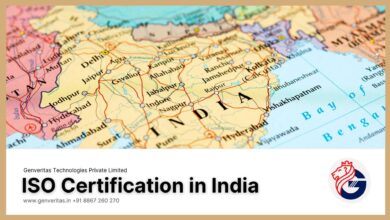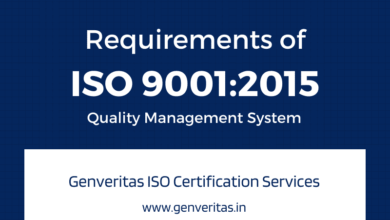How To Choose The Right Food Safety Certification For Your Business?
Food Safety Certification authenticates the food business by implementing healthy practices ensuring optimal safety and quality. The environmental and distinct management systems are vital alongside the legal and standard compliance. If a business is linked with the food industry either directly or indirectly, one needs to get the food safety certification. From legal compliance to market essentials, there are ample reasons to make it an indispensable choice for food businesses. But how do you choose the right certification? Read on and know better.
Success with food safety certifications – What makes it the apt choice?
Before reviewing the various ways to pick the right safety certification for food safety, recognize the benefits and features –
- To regulate and maintain the food quality
- To ensure the safety and optimal health of the consumers
- To eliminate the possible food hazards and risks
- To acquire a global recognition
- To obtain the trust of customers, stakeholders, and industrial vendors
- To become legally compliant
- To incorporate the ideal practices for health and safety
The ultimate reason to pick the best
The purpose of industrial accreditation is uniform across the globe. Once a company gets certified, it is accepted everywhere! However, there are individual organizations certified with two or more food safety standards. A comprehensive framework introduces an all-inclusive administration and reduced redundancies in the organization. In the long run, it acts as a source for generating income via additional certification. There is more than one certification standard and scheme across the globe. Hence, the process of selecting the appropriate scheme is a critical task. Here are a few essential aspects that play a vital role in decision-making while browsing the certifications.
What about the customer’s expectations?
The customer demands incorporating a specific scheme may be a critical aspect of an organization. Most food organizations with numerous customers review the most-popular scheme. Understand that there is no scope for negotiation with the customer, and you can exhibit your rationale while making a firm choice. For instance, if a customer insists on BRC certification, you must negotiate a GFSI-approved certification scheme. Why? Because GFSI benchmarked standards include multiple schemes. It includes – BRCGS or BRC, FSSC 22000, IFS, SQF, and GLOBALGAP. Thus, you must recognize the customer expectation and pick the apt certification scheme.
Review the size of the organization.
GFSI benchmarked standards are practical. These are convenient and achievable by organizations of a specific size. Thus, the size of the company plays a significant part in making the apt decision. Small and micro food businesses must review the elementary options like the FSSC development program for global markets. The small and micro food businesses can also go for other independent schemes SALSA. However, the geographical location plays a distinctive role. The SALSA scheme is independent and it is an apt choice in the UK. These are appropriate starting points if the business is small.
What about resources?
Most organizations with the norms approved by GFSI benchmarks need ample resources. The standards approval necessitates full-time technical personnel. Or there must be a consultancy service team. Professional resources are vital and you cannot avoid it. The technical resources are essential for implementing and maintaining the norms and regulations of the popular food safety certifications.
Features and Benefits of food safety certification
Understanding the prime benefits of the certification will help you uncover numerous reasons to get certified. It is essential for –
- Enhanced job satisfaction at the organization.
- A food safety training program enhances professionalism and knowledge.
- It helps in making the workplace more confident, leading to higher job satisfaction.
- Higher pay is a bonus advantage with the global certification.
- Food safety certification brings more opportunities for business advancement.
- Get a chance to augment the job opportunities.
- Professional certifications make employers look out for high-caliber candidates with optimal skills and expertise.
Improved Health and Safety – The prime factor
The proper practices reduce the risk of contamination. It safeguards the product and food from pathogens like E. coli or Salmonella. One can identify the health risks and unsafe conditions, like – temperature abuse or poor hygiene. It is the prime intention of the certification. Help the workers around food-handling surfaces by following safe practices.
Improved Customer Service – The goal
Apart from recognizing the perks and purpose of the food safety program, clarify the goal. Why do you need it? With these certifications, one can implement new skills and ideal practices. It helps the customers receive superior service. Thus, you gain their trust and can expand the business in the long run.
Summing the pros of getting the apt certification
- Get a golden chance to reduce and avoid the possible food safety risks and issues
- Gain consumer’s trust with the certification and industrial assurance
- Enhance the cross-border market and ensure better expansion
With the increasing cases of product recalls and unwanted food poisoning incidents across the world, consumers are losing faith in food products. Currently, information is easily available via social media. The consumers are aware and prudent, making the apt choice of food purchases. Manufacturers with certification can gain the trust for food safety among consumers, expanding overseas opportunities for the business.
Apart from the vital features of the certification program, the factors that make a significant impact include –
- Cost and resources – Reviewing the feasibility in terms of certification cost and resources is vital for more than one reason. Otherwise, it may not be a fruitful decision. Ensure food safety by reviewing the technical aspects.
- Practical implementation needs – Implementing the ideal practices for food safety needs a practical approach. Make a prudent choice by reviewing the practicalities and easing the needs.
Final note – Get certified by professionals.
Find trusted and qualified resources for the certifications. With an accredited provider of food quality and safety testing, the process of acquiring the certification and training for HACCP, ISO 22000, and FSSC 22000, becomes convenient. Connect to IRQS for a hassle-free audit service. It is efficient and effective for businesses looking for the ultimate solution.





